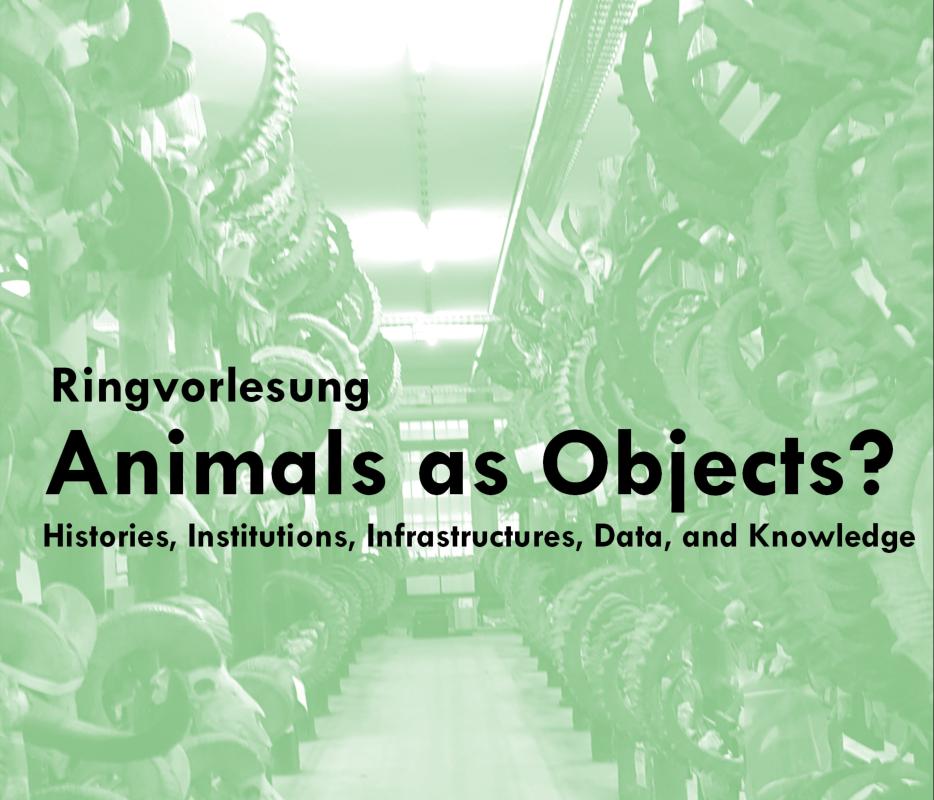This interdisciplinary and international lecture series examines the role of animals in institutional and infrastructural arrangements, past and present. It investigates the processes by which animals are turned into objects, living zoo attractions, museum exhibits, diplomatic tokens, commodities, laboratory tools, data sets, and more. The aim is to understand the trajectories, traffics and transformations of animal-objects within and between different sites in their global, political, scientific and cultural context.
Animals as objects? Histories, Institutions, Infrastructures, Data, and Knowledge
The lecture series is free and open to all. Please register by emailing mareike.vennen[at]hu-berlin.de to receive the Zoom link, and further technical information.
- Languages: English and German
- Mondays, from 16:15 to 17:45
- Live digital format via Zoom
Organized by the joint research project Animals as Objects, Museum für Naturkunde Berlin, Humboldt-Universität Berlin, Zoologischer Garten Berlin AG; in cooperation with the research group The Body of Animals, Max-Planck-Institute für Wissenschaftsgeschichte.
Programme
In the lecture series, we will examine how animals – dead and alive – have been collected, transported, classified, processed, used, understood, and displayed at different times. Presenting shared concerns around the politicization, datafication, and commodification of animals (or animal parts) the lectures will offer an extended understanding of agents, institutions, and infrastructures as human/non-human co-productions. Researchers from contemporary history, the history of science, cultural anthropology, cultural studies as well as environmental history and political theory will explore specific encounters between animal bodies, knowledge practices and material cultures in different local and global settings spanning from colonial times to the present day. By investigating how animals and their environments are imagined, studied and managed, the RVL demonstrates how these processes co-shape institutions, infrastructures, and politics. In what ways have animals been used, studied, and classified as objects? What has historically been made to count as an animal and what role do they play in signifying human socialities, just as much as the natural world?
The lecture series invites you to engage in the work of historicizing "naturalized" views, of investigating the politics of care and the economics of conservation, and of challenging a static notion of animals as ‘objects’. It offers conceptual tools and historical contexts for critically interrogating traditional meanings and narratives of animals.
The lecture series draws from two current research clusters and their extended network: the research project "Animals as Objects: Zoological Gardens and the Natural History Museum Berlin, 1810 to 2020” between Museum für Naturkunde, Berlin; Zoologische Gärten, Berlin; and Humboldt Universität, Berlin; and the research theme The Body of Animals Department III at the Max-Planck-Institut für Wissenschaftsgeschichte.
